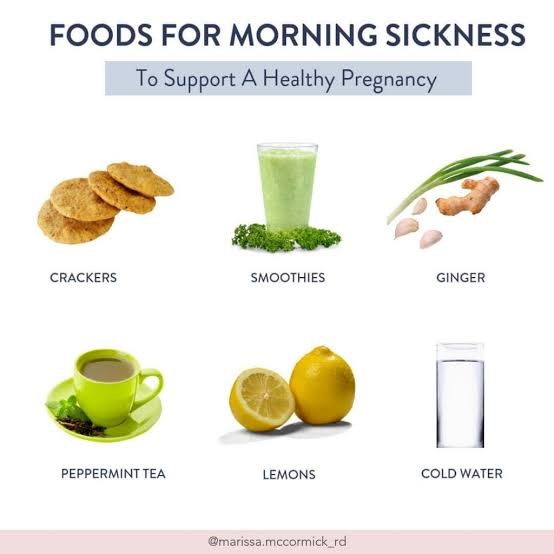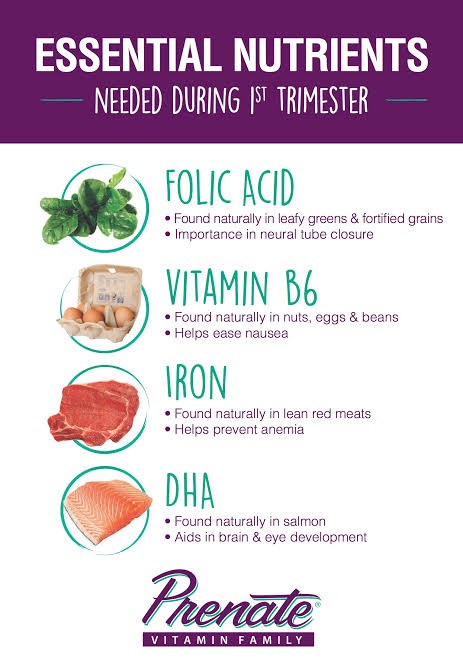MORNING SICKNESS
Nausea and/or Vomiting are common during the first 20 weeks of pregnancy, and it is popularly called Morning Sickness. It occurs when there is an increase in hormones during pregnancy. Morning Sickness is rarely a condition to cause no alarm, except when there is excessive vomiting. Prolonged, persistent vomiting (hyperemesis gravidarum) occurs in approximately 2% of pregnant women. Hospitalisation is usually required, with intravenous fluid and electrolyte replacement to prevent dehydration.
Approximately 50–90% of women experience nausea and vomiting, but only a minority experience this after 20 weeks’ of pregnancy. Symptoms range from periodic nausea to severe vomiting (Jarvis & Nelson-Piercy, 2011). These symptoms can occur at any time of the day and can last all day.
TIPS FOR COMBATING MORNING SICKNESS

 The 7 Do’s
The 7 Do’s
- Eat small but frequent meals and snacks; empty stomach worsens nausea.
- Eat dry foods: Dry foods may be better tolerated, e.g. dry biscuits, Toast bread, crackers, cereal, especially early in the morning.
- Avoid foods with offensive odours.
- When nauseated, drink little carbonated or fizzy drinks or ginger/mint leaves/fruit flavoured water, instead of citrus juice, plain water, milk, coffee, or tea.
- Drink liquids between meals rather than with meals.
- Keep rooms well ventilated.
- Take your prenatal vitamins at night instead of morning.
The 7 Don’ts
- Don’t forget to drink, as dehydration worsens nausea.
- Avoid cooking smells and strong odours
- Do not stay in warm places, feeling hot induces nausea.
- Avoid fatty and highly spiced foods.
- Don’t skip meals
- Avoid getting very hungry before you munch a snack or food.
- Don’t lie down after immediately after meals.
In conclusion, good nutrition is essential for a healthy pregnancy and birth outcome. If you continue to vomit after eating or find it difficult to tolerate food, consult with your Gynaecologist for proper examination and treatment. In addition, consult with a Registered Dietitian Nutritionist for proper dietary management.
REFERENCES
Jarvis S, Nelson-Piercy C. (2011) Management of nausea and vomiting in pregnancy. BMJ 342: d3606.
Manual of Dietetic Practice, Fifth Edition; edited by Joan Gandy; The British Dietetic Association (2014) by John Wiley & Sons, Ltd.
Sharon Rady Rolfes et al. (2009) Understanding Normal and Clinical Nutrition, Ninth Edition, Wadsworth, Cengage Learning.
Manual of Clinical Nutrition Management by Morrison; Compass Group, Inc. 2013
Adequate Food Guarantees Great Health; You Are What You Eat!
OGUNBAYO-OLABODE AZEEZAT (R.D.N.)
FOUNDER, HEALTHDEAL NUTRITION
Facebook page: https://www.facebook.com/precisedietitian/
E-mail: healthdealwithaz@gmail.com


